Diplomat/ H.E. Karel Hartogh
Words MAXMILIAN WECHSLER
Words MAXMILIAN WECHSLER
| THE Kingdom of the Netherlands consistently ranks in the top ten of happiest countries in the world. Fortunately that state of mind also extends to the country’s beautiful embassy in Bangkok, now occupied by Ambassador Karel Hartogh, who took up his post in July last year. The renovated ambassador’s residence and chancery and the spacious garden with its fine old trees and ponds contribute to the postcard imagery of the embassy compound. It is home to monitor lizards, squirrels, a great variety of birds and fish and other animals. But what really gives the place that air of playful intelligence the Dutch are known for is the “EU herd,” a collection of 29 life-size polyester cows painted in the colors of the EU and its 28 member states. The Netherlands was a founding member of the EU and by and large the Dutch people remain committed to its objectives and potential. The herd was adopted by the Netherlands when it headed the EU in 2004, and after a world tour that included Bangkok’s Benjasri Park the colourful cows were put to pasture in this refreshing green space on Wireless Road. “The cows have been here for a few years and they are much appreciated by the local staff. When I arrived I asked them if they wanted the cows removed, and they all said ‘absolutely not.’ Visitors also like them very much and they are now more or less part of the inventory of the embassy,” said Mr Hartogh. |
Building on a long tradition
The Ambassador gave a brief run-down of the longstanding Thai-Dutch bilateral relationship: “The first Dutch settlement in Siam was established in Ayutthaya in 1634 but our traders established formal relations with Siam in 1604. They met with King Prasat Thong and got his permission to start a trading mission in Ayutthaya which gradually became a Dutch enclave. From there we branched out to other regions.
“When Her Majesty Queen Beatrix visited Thailand in January 2004 she presented the Baan Hollanda Information Centre in old Ayutthaya as a gift to the Thai people. The museum archives the history of our bilateral relationship and it’s also a place where you can relax and have a cup of coffee. It’s interesting culturally and historically and it’s become very popular with Thais as well as Dutch tourists.”
Mr Hartogh was born in Paris in 1956, the son of a diplomat. “My father was at that time working for the OECD (Organization for Economic Co-operation and Development). When he changed positions in 1959 the family moved back to the Netherlands, and I grew up in and around The Hague. My father ended his career as ambassador to NATO in Brussels in the ’70s. I joined the Dutch Foreign Ministry in 1985, and did a nine-year stint at the Ministry of Economic Affairs before going back to the Foreign Ministry to take up the position of Private Secretary to our Foreign Minister.
“This is my first foreign posting, except for a brief stop last year in Islamabad. I served two months there to take care of the embassy following the tragic accident in May 2015 in which the Dutch Ambassador Marcel de Vink was severely injured. There was a helicopter crash and a number of diplomats were injured or killed. The ambassador was transported back to the Netherlands.
“I was asked to look after the embassy in Islamabad because I had been director of the ministry’s Asia Desk and also because I knew Pakistan and the ambassador very well. Marcel was badly burned on both legs and is in the Netherlands working on his rehabilitation. I took care of embassy business and took charge of bringing Marcel’s personal belongings back to the Netherlands.
“So I was in Islamabad from May to June 2015 before coming to Bangkok. It was my personal choice to come to Thailand,” said Mr Hartogh. “As director of the Asia Department I had the privilege of deciding where I would go – depending on availability of course. It was my explicit wish to come to Thailand for a couple of reasons. First, I know the country very well. I have been here many times and have a deep affection for Thailand.
“I have been to Thailand many times as a tourist with my family and also on quite a number of business occasions. I have vivid memories of Queen Beatrix’ 2004 visit to mark 400 years of diplomatic relations with Thailand. I had the privilege of being in her delegation. Another time that I would like to mention, specifically because it was very moving for me, was after the December 2004 tsunami, when I accompanied the Dutch foreign minister on an official visit.
“We went to Phi Phi Island and Khao Lak and talked to victims’ relatives and the Dutch team of experts involved in the identification of bodies. Our team was very dedicated and highly qualified. They worked for weeks on end to put names to the victims and help bring some closure to the families. We also visited our embassy in Bangkok and spoke to people who were there when it happened and saw terrible things. I visited Bangkok, Thailand and the region on many other occasions while I was deputy and then director of the Asia Desk.”
Diplomatic objectives
“My goals are to serve the people of the Netherlands well by taking care of their interests and concerns as far as consular affairs, promoting values that are dear to my country, and improving economic relations,” said Mr Hartogh. “We have expanded our economic team to boost trade and facilitate business ties. One of the interesting by-products of our longstanding friendship with Thailand is the presence of so many Dutch companies here. There are more than 300 and most are doing good business. Of course it can always be better. The economic situation in the Netherlands is improving and more and more companies are eager to find a way to the East.
“When my time is up here in four years I hope to see the expansion of an already very good economic exchange, particularly in the fields of water management, agriculture and urbanization where the Dutch have so much to offer. We have quite a number of world renowned companies that are actively engaged in these areas. There are significant challenges in this country concerning flood protection, water storage and flow, improvement of harbors and so on. My country literally grew up with these challenges around us and no one is better at implementing the solutions.
“I raised the issue with Prime Minister General Prayuth Chan-ocha when we met at Government House on February 25. He was very interested in taking advantage of our knowledge and experience in water management. Actually in recent years we have been pretty busy working with Thai authorities in many areas. I presented the PM with some reports to aid in the country’s master water management plan and told him we are working on water management in Myanmar together with the private sector, universities and the government. Together we have developed a comprehensive plan and we are all busy tackling the challenges facing Myanmar in terms of water management.
“I told the prime minister that we want to take the same kind of proactive role in Thailand. He asked me what Thailand should be doing better. I told him that the country should be formulating a comprehensive plan for the long term and not just enacting short term solutions, and I said we would very much like to help with the management and coordination of such a plan. I also emphasized the importance of cooperation from all stakeholders. The prime minister expressed confidence in Thailand’s ability to devise and implement a proper water management strategy, but he also seemed very interested in learning from the Dutch experience and expertise.
“We have also been talking to the new director general of the Port Authority of Thailand about ways to assist them in expanding the port. Moreover, the harbors in Thailand need to increase efficiency in order to compete with Singapore and other regional harbors. The Port Authority has great ambitious but they need to have a comprehensive plan, and we are trying to assist them.”
The Ambassador gave a brief run-down of the longstanding Thai-Dutch bilateral relationship: “The first Dutch settlement in Siam was established in Ayutthaya in 1634 but our traders established formal relations with Siam in 1604. They met with King Prasat Thong and got his permission to start a trading mission in Ayutthaya which gradually became a Dutch enclave. From there we branched out to other regions.
“When Her Majesty Queen Beatrix visited Thailand in January 2004 she presented the Baan Hollanda Information Centre in old Ayutthaya as a gift to the Thai people. The museum archives the history of our bilateral relationship and it’s also a place where you can relax and have a cup of coffee. It’s interesting culturally and historically and it’s become very popular with Thais as well as Dutch tourists.”
Mr Hartogh was born in Paris in 1956, the son of a diplomat. “My father was at that time working for the OECD (Organization for Economic Co-operation and Development). When he changed positions in 1959 the family moved back to the Netherlands, and I grew up in and around The Hague. My father ended his career as ambassador to NATO in Brussels in the ’70s. I joined the Dutch Foreign Ministry in 1985, and did a nine-year stint at the Ministry of Economic Affairs before going back to the Foreign Ministry to take up the position of Private Secretary to our Foreign Minister.
“This is my first foreign posting, except for a brief stop last year in Islamabad. I served two months there to take care of the embassy following the tragic accident in May 2015 in which the Dutch Ambassador Marcel de Vink was severely injured. There was a helicopter crash and a number of diplomats were injured or killed. The ambassador was transported back to the Netherlands.
“I was asked to look after the embassy in Islamabad because I had been director of the ministry’s Asia Desk and also because I knew Pakistan and the ambassador very well. Marcel was badly burned on both legs and is in the Netherlands working on his rehabilitation. I took care of embassy business and took charge of bringing Marcel’s personal belongings back to the Netherlands.
“So I was in Islamabad from May to June 2015 before coming to Bangkok. It was my personal choice to come to Thailand,” said Mr Hartogh. “As director of the Asia Department I had the privilege of deciding where I would go – depending on availability of course. It was my explicit wish to come to Thailand for a couple of reasons. First, I know the country very well. I have been here many times and have a deep affection for Thailand.
“I have been to Thailand many times as a tourist with my family and also on quite a number of business occasions. I have vivid memories of Queen Beatrix’ 2004 visit to mark 400 years of diplomatic relations with Thailand. I had the privilege of being in her delegation. Another time that I would like to mention, specifically because it was very moving for me, was after the December 2004 tsunami, when I accompanied the Dutch foreign minister on an official visit.
“We went to Phi Phi Island and Khao Lak and talked to victims’ relatives and the Dutch team of experts involved in the identification of bodies. Our team was very dedicated and highly qualified. They worked for weeks on end to put names to the victims and help bring some closure to the families. We also visited our embassy in Bangkok and spoke to people who were there when it happened and saw terrible things. I visited Bangkok, Thailand and the region on many other occasions while I was deputy and then director of the Asia Desk.”
Diplomatic objectives
“My goals are to serve the people of the Netherlands well by taking care of their interests and concerns as far as consular affairs, promoting values that are dear to my country, and improving economic relations,” said Mr Hartogh. “We have expanded our economic team to boost trade and facilitate business ties. One of the interesting by-products of our longstanding friendship with Thailand is the presence of so many Dutch companies here. There are more than 300 and most are doing good business. Of course it can always be better. The economic situation in the Netherlands is improving and more and more companies are eager to find a way to the East.
“When my time is up here in four years I hope to see the expansion of an already very good economic exchange, particularly in the fields of water management, agriculture and urbanization where the Dutch have so much to offer. We have quite a number of world renowned companies that are actively engaged in these areas. There are significant challenges in this country concerning flood protection, water storage and flow, improvement of harbors and so on. My country literally grew up with these challenges around us and no one is better at implementing the solutions.
“I raised the issue with Prime Minister General Prayuth Chan-ocha when we met at Government House on February 25. He was very interested in taking advantage of our knowledge and experience in water management. Actually in recent years we have been pretty busy working with Thai authorities in many areas. I presented the PM with some reports to aid in the country’s master water management plan and told him we are working on water management in Myanmar together with the private sector, universities and the government. Together we have developed a comprehensive plan and we are all busy tackling the challenges facing Myanmar in terms of water management.
“I told the prime minister that we want to take the same kind of proactive role in Thailand. He asked me what Thailand should be doing better. I told him that the country should be formulating a comprehensive plan for the long term and not just enacting short term solutions, and I said we would very much like to help with the management and coordination of such a plan. I also emphasized the importance of cooperation from all stakeholders. The prime minister expressed confidence in Thailand’s ability to devise and implement a proper water management strategy, but he also seemed very interested in learning from the Dutch experience and expertise.
“We have also been talking to the new director general of the Port Authority of Thailand about ways to assist them in expanding the port. Moreover, the harbors in Thailand need to increase efficiency in order to compete with Singapore and other regional harbors. The Port Authority has great ambitious but they need to have a comprehensive plan, and we are trying to assist them.”
| Embassy mission Mr Hartogh said the Dutch embassy has historically been one of the busiest in Thailand and in the last year they have stepped up activities even further. “First of all, I want to say how very pleased I am with the staff of the embassy. They are all highly competent. This has been a pleasant surprise, because even if you get your choice of assignments as I did, as an ambassador you never really know what you are in for until you arrive at the embassy. So I feel very fortunate. “We are putting a great deal of energy into economic diplomacy and consular affairs, two areas which are vital to our mission. I am also very keen to promote cross-cultural events by organizing things like movie nights, exhibitions and alumni gatherings. We have also had a lively King’s Day celebration at the embassy. |
“Another important focus of the embassy is human trafficking in Southeast Asia. We have a Dutch Police Liaison Officer here at the embassy, responsible for initiating cooperation with the Thai authorities and authorities of neighboring countries with regard to several kinds of crime, such as money laundering, narcotics, child abuse, and child sex tourism. We are enjoying good cooperation with the Thai authorities as well as law enforcement agencies from other countries.”
The ambassador and his staff are responsible for not only Thailand but also Laos, Cambodia and until very recently Myanmar. A Dutch embassy was inaugurated in Myanmar in January this year and will have its own ambassador from June. “We have stepped up our activities in Laos which is now the chair of ASEAN. I have been there four times in the past few months trying to boost trade relations and political cooperation.
“Cambodia offers similar opportunities for improvement in trade and investment. Part of my job is to support Dutch companies and I travel very frequently in this regard. There are a surprising number of Dutch companies in the region,” said the ambassador, adding that the heavy workload in this field puts a burden on the embassy staff but they are managing quite well.
“We have improved our working environment by making it more efficient and re-arranging responsibilities. Soon we will see an expansion in staff due to the increasing pressures, particularly in the consular and economic sections.”
The consular section must address the needs of the large number of Dutch citizens who are in Thailand at any one time. “There are between 20,000 – 25,000 of our citizens living here and around 200,000 who visit the country annually. In recent months the number of Dutch tourists increased even further (at least 10 percent) due to i.a. (security-related) uncertainties in other parts of the world as far as tourism is concerned. Many Thais also travel to the Netherlands for a variety of reasons, such as for tourism purposes, to visit family residing there or for business. Many Thai entrepreneurs are based in the Netherlands. It is our duty to provide efficient and fair visa services for Thais who wish to travel to our country.
“Due to some worries about the tourism conditions in Thailand we have stepped up cooperation with the Ministry of Sport and Tourism. I think that Minister Kobkarn Wattanavrangkul has been instrumental in working out good solutions in a number of areas. There have been quite a number of complaints from tourists about pricing and scams involving jet-skis and so forth, particularly in the Phuket area. I have met with the governor of Phuket several times along with colleagues from other countries to discuss these issues and we are seeing improvements. The Governor seems to be sincerely committed to improving tourism conditions in and around Phuket.”
Exporting CSR
Mr Hartogh also elaborated on the formidable Dutch economic presence here and the role the embassy plays in advancing business interests along with the philosophy of corporate social responsibility (CSR), which he said is “a part of our DNA.”
“The concept of CSR is very dear to the Netherlands and to Dutch companies. CSR encompasses many things such as treating employees fairly and following proactive policies that emphasize social and environmental justice. CSR is a part of the business model of almost all Dutch companies, but this is still not systematically the case with Thai companies. So this is another Dutch value we want to share with Thailand and also Myanmar, Cambodia and all of ASEAN. We organized a seminar on CSR in Vientiane a few weeks ago.
“CSR pays off for the companies as well as employees, the environment and value chain. For one thing, it enhances employee loyalty to the company. In Thailand what you see is a workforce that is constantly on the move to different factories, construction sites, shops and offices. If you invest more in the labor force and improve working conditions, people will hang around and you can educate and train them so that they increase their value to the company and work their way up.
“There are some very successful Dutch businesses in this region practicing a high level of CSR. For example, one company in Vientiane in Laos (DVL, led by Dutchman Mr John Somers) in the garment sector pays better than the local competition, provides medical insurance and childcare and has a generous policy on paid leave. Everyone wants to work there, so productivity is high. What’s more, other companies in the area are taking note and making changes to the way they do business.
“Shell, Unilever, Philips, Heineken are some of the big Dutch companies that have bases in Thailand. These well established companies are successfully doing business in Thailand, but the business environment for the medium and small enterprises interested in operating in Thailand is pretty difficult and complex. The government is in the process of throwing out some cumbersome regulations to attract more investment from abroad. The fundamentals are good and in the long term Thailand has the capacity and the potential to become a regional power. But there is a lot of work to be done, and for that matter the political situation has to improve,” Mr Hartogh said.
The ambassador also mentioned that the embassy has purchased a tuk-tuk in Dutch orange, but unfortunately the diplomatic plates for it have not arrived nearly a year after the application was made. Coincidentally, a small enterprise run by Dutch entrepreneur Dennis Harte, who was interviewed for a past edition of The BigChilli, founded Tuk Tuk Factory, a company that assembles electric tuk-tuks in Thailand for sale around the world.
Talking orange, Mr Hartogh pointed at new very innovative project called ‘Orange ASEAN’ through which the Netherlands intends to promote sustainable economic development in Thailand. It brings together students from the Netherlands and Thailand and other parts of the region to work on solutions to global challenges like waste management.
“We invited a group of about 30 students and a mediator and gave them the assignment of finding solutions to handle the waste from a couple of local factories and it worked it out pretty well. They were all very intelligent people and they even managed to work out within less than three weeks some business models which could be put in place by entrepreneurs.
“Waste management was not accidentally chosen as it poses a challenge to the Thai environment, and the awareness of its negative impacts on the environment is still limited in Thailand. It is striking to me that when you go to the supermarket you get almost one plastic bag for every item you buy. When you say just give me one bag the staff look surprised.”
The ambassador and his staff are responsible for not only Thailand but also Laos, Cambodia and until very recently Myanmar. A Dutch embassy was inaugurated in Myanmar in January this year and will have its own ambassador from June. “We have stepped up our activities in Laos which is now the chair of ASEAN. I have been there four times in the past few months trying to boost trade relations and political cooperation.
“Cambodia offers similar opportunities for improvement in trade and investment. Part of my job is to support Dutch companies and I travel very frequently in this regard. There are a surprising number of Dutch companies in the region,” said the ambassador, adding that the heavy workload in this field puts a burden on the embassy staff but they are managing quite well.
“We have improved our working environment by making it more efficient and re-arranging responsibilities. Soon we will see an expansion in staff due to the increasing pressures, particularly in the consular and economic sections.”
The consular section must address the needs of the large number of Dutch citizens who are in Thailand at any one time. “There are between 20,000 – 25,000 of our citizens living here and around 200,000 who visit the country annually. In recent months the number of Dutch tourists increased even further (at least 10 percent) due to i.a. (security-related) uncertainties in other parts of the world as far as tourism is concerned. Many Thais also travel to the Netherlands for a variety of reasons, such as for tourism purposes, to visit family residing there or for business. Many Thai entrepreneurs are based in the Netherlands. It is our duty to provide efficient and fair visa services for Thais who wish to travel to our country.
“Due to some worries about the tourism conditions in Thailand we have stepped up cooperation with the Ministry of Sport and Tourism. I think that Minister Kobkarn Wattanavrangkul has been instrumental in working out good solutions in a number of areas. There have been quite a number of complaints from tourists about pricing and scams involving jet-skis and so forth, particularly in the Phuket area. I have met with the governor of Phuket several times along with colleagues from other countries to discuss these issues and we are seeing improvements. The Governor seems to be sincerely committed to improving tourism conditions in and around Phuket.”
Exporting CSR
Mr Hartogh also elaborated on the formidable Dutch economic presence here and the role the embassy plays in advancing business interests along with the philosophy of corporate social responsibility (CSR), which he said is “a part of our DNA.”
“The concept of CSR is very dear to the Netherlands and to Dutch companies. CSR encompasses many things such as treating employees fairly and following proactive policies that emphasize social and environmental justice. CSR is a part of the business model of almost all Dutch companies, but this is still not systematically the case with Thai companies. So this is another Dutch value we want to share with Thailand and also Myanmar, Cambodia and all of ASEAN. We organized a seminar on CSR in Vientiane a few weeks ago.
“CSR pays off for the companies as well as employees, the environment and value chain. For one thing, it enhances employee loyalty to the company. In Thailand what you see is a workforce that is constantly on the move to different factories, construction sites, shops and offices. If you invest more in the labor force and improve working conditions, people will hang around and you can educate and train them so that they increase their value to the company and work their way up.
“There are some very successful Dutch businesses in this region practicing a high level of CSR. For example, one company in Vientiane in Laos (DVL, led by Dutchman Mr John Somers) in the garment sector pays better than the local competition, provides medical insurance and childcare and has a generous policy on paid leave. Everyone wants to work there, so productivity is high. What’s more, other companies in the area are taking note and making changes to the way they do business.
“Shell, Unilever, Philips, Heineken are some of the big Dutch companies that have bases in Thailand. These well established companies are successfully doing business in Thailand, but the business environment for the medium and small enterprises interested in operating in Thailand is pretty difficult and complex. The government is in the process of throwing out some cumbersome regulations to attract more investment from abroad. The fundamentals are good and in the long term Thailand has the capacity and the potential to become a regional power. But there is a lot of work to be done, and for that matter the political situation has to improve,” Mr Hartogh said.
The ambassador also mentioned that the embassy has purchased a tuk-tuk in Dutch orange, but unfortunately the diplomatic plates for it have not arrived nearly a year after the application was made. Coincidentally, a small enterprise run by Dutch entrepreneur Dennis Harte, who was interviewed for a past edition of The BigChilli, founded Tuk Tuk Factory, a company that assembles electric tuk-tuks in Thailand for sale around the world.
Talking orange, Mr Hartogh pointed at new very innovative project called ‘Orange ASEAN’ through which the Netherlands intends to promote sustainable economic development in Thailand. It brings together students from the Netherlands and Thailand and other parts of the region to work on solutions to global challenges like waste management.
“We invited a group of about 30 students and a mediator and gave them the assignment of finding solutions to handle the waste from a couple of local factories and it worked it out pretty well. They were all very intelligent people and they even managed to work out within less than three weeks some business models which could be put in place by entrepreneurs.
“Waste management was not accidentally chosen as it poses a challenge to the Thai environment, and the awareness of its negative impacts on the environment is still limited in Thailand. It is striking to me that when you go to the supermarket you get almost one plastic bag for every item you buy. When you say just give me one bag the staff look surprised.”
|
H.E. Karel J. Hartogh in focus
Education • 1976: High School Diploma, Van Maerlant Lyceum, The Hague • 1985: Specialisation International Law, University of Amsterdam • 1987: Master of Law, University of Leiden, VU Amsterdam Professional Experience • 1985-1989: Ministry of Foreign Affairs (European Department) • 1990-1999: Ministry of Economic Affairs (resp. EU Department, Export Controls Department, Strategic Affairs Department, Secretary of Minister for Foreign Trade) • 1999-2001: Ministry of Foreign Affairs (Deputy Head Southern Africa Department) • 2001-2005: Principal Private Secretary to Minister of Foreign Affairs • 2006-2008: Deputy Director of Asia Department • 2009-2014: Director of Asia Department • May-July 2015: Chargé d’Affaires in Islamabad • July 2015 present: Ambassador to Thailand, also accredited to Myanmar, Laos and Cambodia State orders awarded by Thailand • 2004: Commander of the Most Exalted Order of the White Elephant (January 18, 2004) |
Diplomatic channels
“In general I am very happy with the cooperation between diplomats in this city, especially between representatives of the European Union. We come together every now and then and talk about current events and share our experiences and information about things that may or may not be in the newspapers. Actually the Bangkok diplomatic community as a whole is very close. My embassy has good ties with the diplomats from many countries around the globe, so the stream of information is sufficient to get a clear picture of what is going on in this country.
Ambassador Hartogh noted that the Netherlands is well known for championing international treaties and values that promote human and social rights. “The Hague is called the City of Peace and Justice because so many international institutions are based there. I intend to promote my country’s core values in Thailand and everywhere else I go during my term as ambassador.
“I think that the Thai people are pretty much aware of what is going on even if they aren’t able to read about it in the papers. The political situation in Thailand is a vicious circle and it hasn’t changed much over the last 30 years. The basics of the political and social problems in Thailand are quite well known to the public. The question is how to solve these problems. It is important for me to add that Thai problems require Thai solutions. Trying to force our ideas on others is not the Dutch approach. The red line, as far as we are concerned, is that Thailand has to observe its international obligations, in all fields including human rights.”
Brightening Buriram
“We have been working with Pornthip Asdathorn to promote a Dutch-themed holiday camp, hotel and flower garden in Buriram province. Ms Pornthip has been importing tulip bulbs from the Netherlands and in the last few months around 250,000 tulips were blossoming in Buriram. The flowers blossom in about one and a half months and they are grown in open fields. I mentioned this to General Prayuth as well because it reflects another kind of Dutch innovative technology. In the past it would have been unthinkable for Dutch tulips to grow in this environment, but the renowned agricultural institute Wageningen University has managed to do it. ‘We are not only strong in water,’ I said to him.
“I was joking with Ms Pornthip and told her we were supporting her in this endeavor even though she was actually competing with Holland because many Thai people come to see our tulips in Keukenhof Gardens, a city with a very famous flower garden that attracts huge numbers of tourists. Ms Pornthip is not selling the tulips in her garden. She is adding value to Buriram as a tourist destination, and I take a certain pride in that.
“We are also in the process of organizing training sessions in Buriram for Dutch football. In January and February it is too cold to play football in Holland so we turn to different destinations for training. We’re looking into the possibility of arranging Dutch teams’ training with Thai teams in Buriram because the province has some good teams and devoted fans. We are talking about other joint ventures in the realm of sports as well.”
Personal
Despite his busy schedule Mr Hartogh is clearly happy in his host country and in his residence on Wireless Road. “There are not many places around the world like this embassy. It is certainly unique within the diplomatic environment in Bangkok and I like to open it to the public as much as possible. That’s why we organize movie nights and other cultural events on the Embassy’s premises. We show Thai people around and tell them the history of the compound, which goes back way before our government bought the place in 1949.
“All embassy staff feels very fortunate to have the opportunity to work here, and I am especially privileged because I also live in this wonderful environment. However, I am not happy with the koel birds (kavao in Thai). They start making noise every morning as early as 4am. I keep a pair of earplugs next to my bed; otherwise I wouldn’t get any sleep. But this is a manageable inconvenience.
“One of my good friends is Danish Ambassador Mikael Hemniti Winther, who is now dean of the Bangkok diplomatic corps. We are always joking because our countries are regularly exchanging places in the various surveys of world’s happiest country. Both are consistently ranked in the top 10. I have a lot of laughs with Mikael and I am really sorry he’s leaving his post here soon. He is a great guy and he and his spouse have done a lot within the diplomatic community here. He’s also a great musician.
“I am a big fan of jazz and blues and it really struck me when I arrived in Bangkok and found that there is so much good jazz and blues here. There are about 10 really good clubs and I frequently visit them with colleagues or friends. Apoteka in Sukhumvit Soi 11 is one of my favorites.
“For exercise I do some running in Lumpini Park on Sundays, with some colleagues and Thai friends. I’ve also started to learn basic Thai. I call it ‘taxi Thai.’ It is fun and it serves a practical purpose as well.”

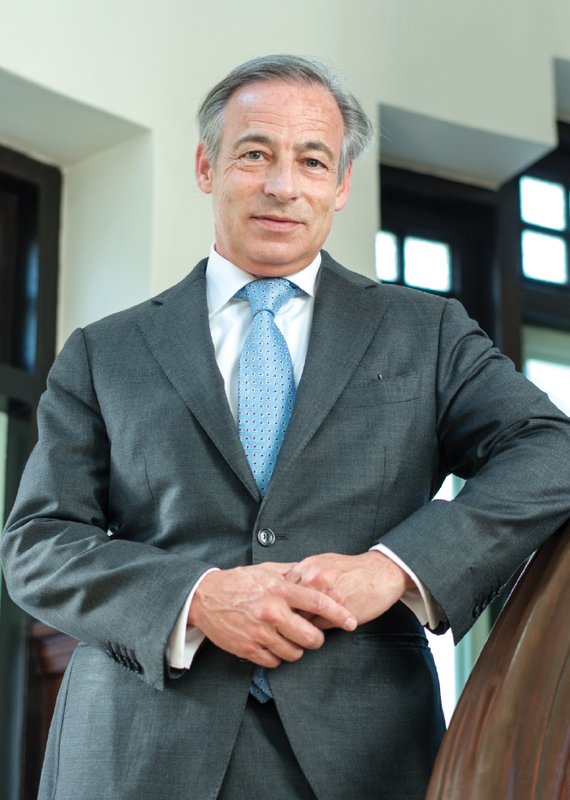
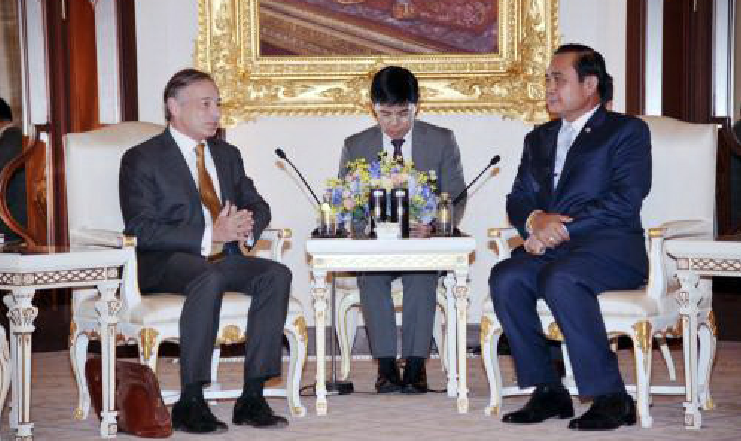
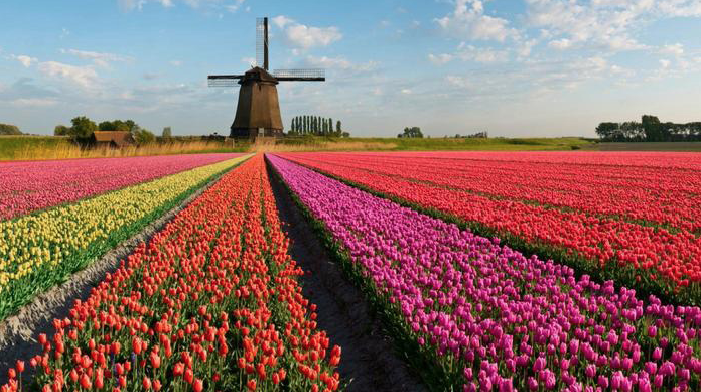
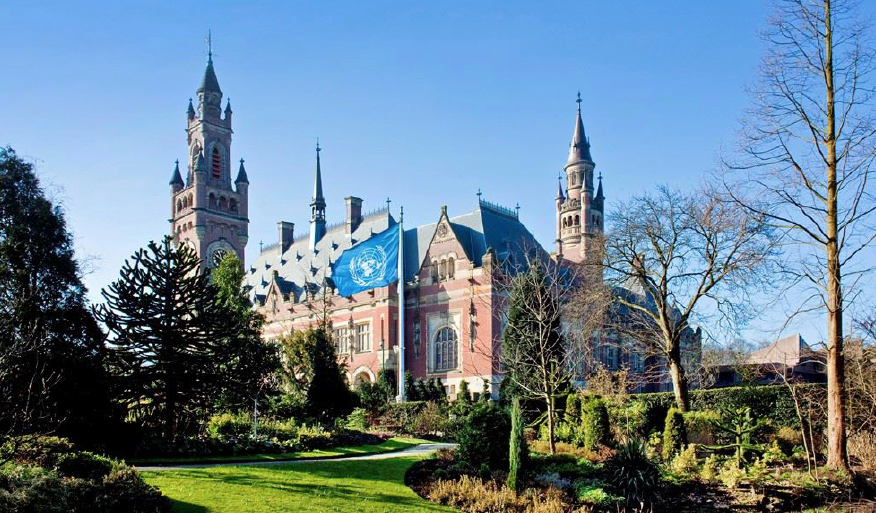
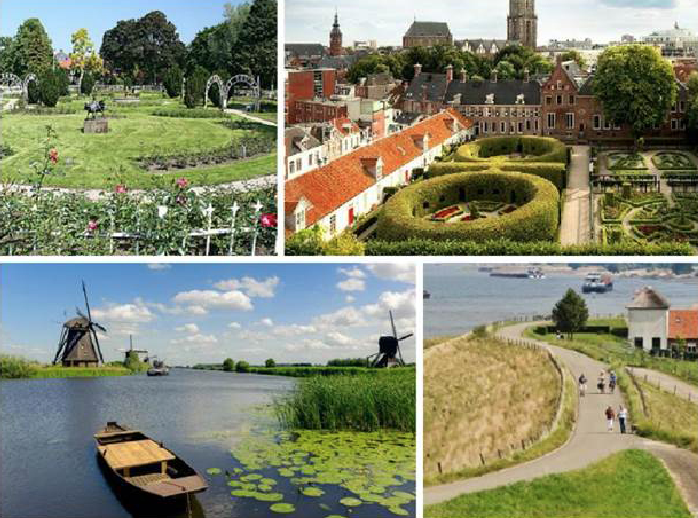

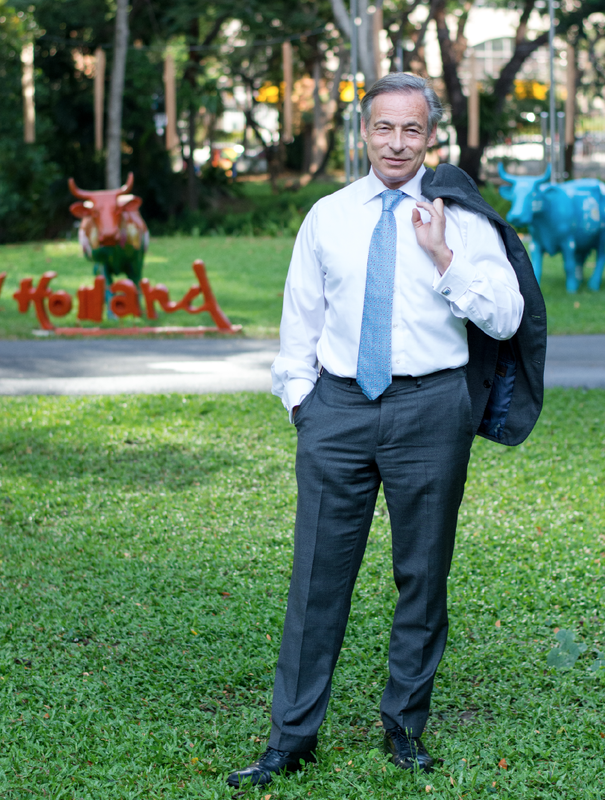
 RSS Feed
RSS Feed



